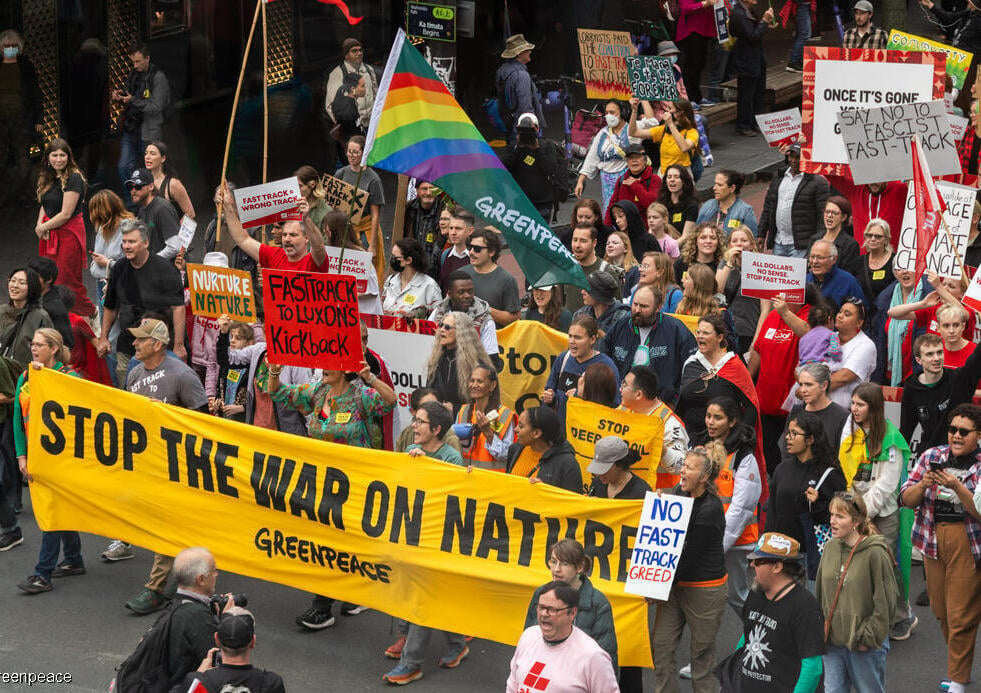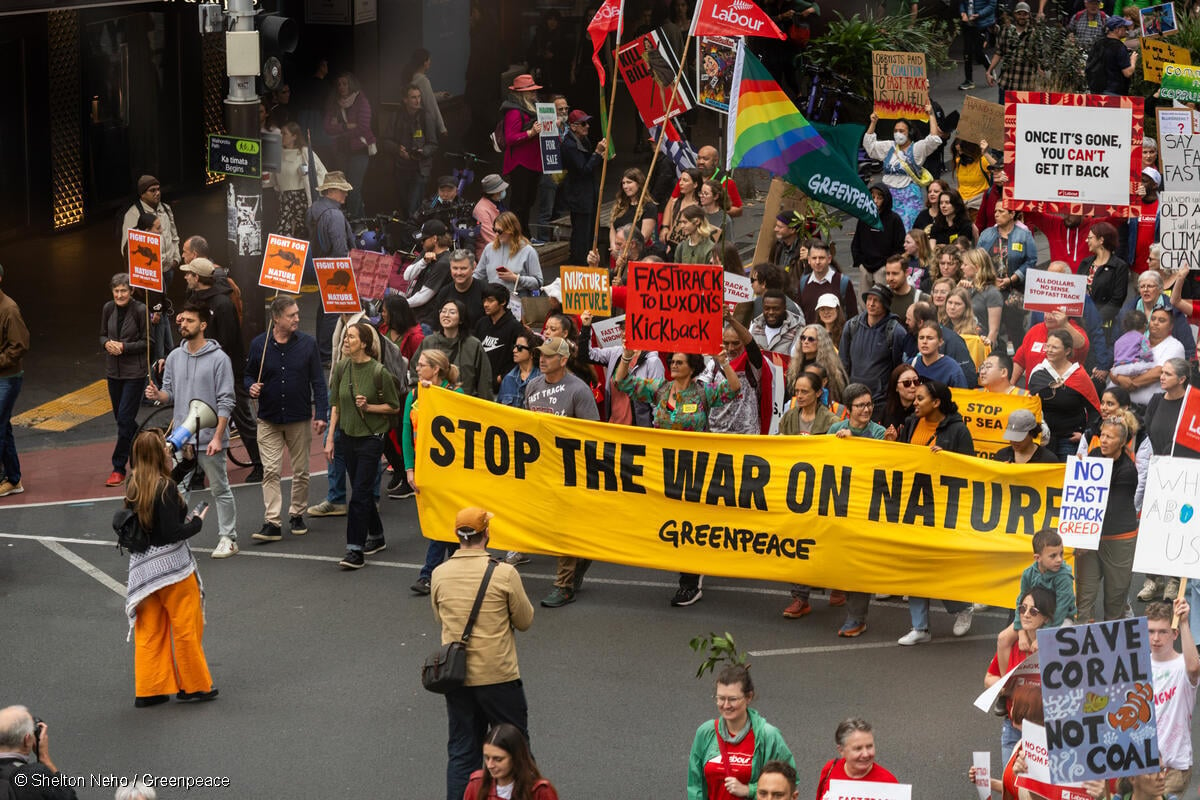Christopher Luxon’s bleak vision of New Zealand as a giant open-cast mine comes one step closer as the Government announces eleven mining projects it will push through under the controversial fast-track approvals process, says Greenpeace.
Greenpeace spokesperson Juressa Lee says, “This is no surprise, but it’s still a shock to hear that amidst the climate and biodiversity crises, this Government is going to forge ahead with eleven new mines using the much-maligned fast track approvals process.
“It’s especially concerning to see that the Trans-Tasman Resources Taranaki seabed mining project is on the list after being such an abject failure in the environment court and Supreme Court and attracting such widespread opposition from mana whenua, the environmental movement and the offshore wind industry.”
By attempting to fast track seabed mining the Luxon Government is blocking one of New Zealand’s most important new renewable energy projects – offshore wind. The offshore wind industry has said seabed mining in the South Taranaki Bight will prevent an offshore wind generation project being established there.
“With this announcement, Christopher Luxon, Chris Bishop and Shane Jones are running roughshod over expert advice, and all of those New Zealanders who don’t want to see the forests and oceans of Aotearoa turned to open cast mines, rivers and lakes turned to sewers and more precious species pushed to extinction.”
Greenpeace says the projects won’t go ahead without a fight, citing the 20,000-plus-strong protest March for Nature and over 12,000 people signing on to an open letter of resistance to the fast track bill.
“Any company seeking to use the fast track bill to get around existing environmental protections and the wishes of iwi, hapū and local communities who want nature protected should have a good hard think about how badly that will reflect on them and their shareholders, and the resistance they will face.
“There are some worthy projects on the list, but they are tainted by the process and the presence of Trans-Tasman Resources at the bottom of the barrel. The fast track is the wrong track and will be a poisoned chalice for those companies who risk it.”
Greenpeace says there are many other notorious projects causing ecological destruction on the list, including:
- The Hawkes Bay Tukituki Water Security Project, formerly known as the Ruataniwha Water Storage Scheme, which seeks to dam the Makaroro River to recreate a water storage reservoir, is also on the list. Greenpeace fought against the Ruataniwha dam for several years before it was shelved.
- The Waitaha Hydro Scheme is a project that was previously declined because of its impact on the environment. (This point has been updated to correct an error)
- The Hurunui irrigation scheme will kill a wild river and result in more intensive dairy operations with associated pollution.
- Mining on the Stockton Plateau will cause immense environmental destruction. The International Energy Agency has said there can be no new investment in oil, gas and coal if governments are serious about stopping climate change.
- Waimate waste-to-energy incineration
- And others
Greenpeace occupied the Straterra building last month in a protest against the possibility of its client’s Trans-Tasman Resources seabed mining project being included. The action resulted in several arrests but Greenpeace says it was a sign of things to come and “a demonstration of the resistance promised” in the recently published open letter to all companies considering using the Fast Track Approvals process which has since increased from 7,500 signatories to over 12,000.

Sign on to this open letter to industry now to help push more of them to opt out of the Fast Track.
Add my nameThe full fast track list is available here.




